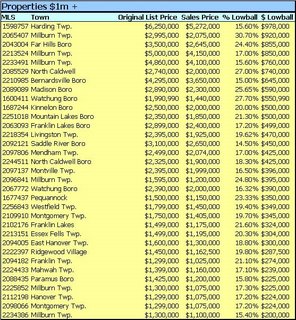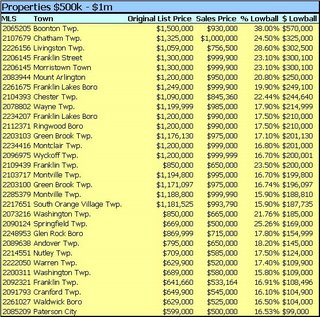Passaic County - The Tax Man Cometh
County board orders revaluations
The Passaic County Board of Taxation expects to order all municipalities to undergo property revaluations within three years said Richard Mohr, board president.
Ringwood, North Haledon, Little Falls, Totowa and West Paterson will initiate the process, having received letters ordering revaluations last month. The next batch of municipalities will receive notices next summer, he said.
It has been nearly two decades since the last countywide revaluation. In 1985, the taxation board ordered all county municipalities to re-evaluate their tax base, and the process was completed between 1986 and 1992 by all municipalities except Paterson, said Mohr. Paterson is currently undergoing a revaluation and hasn't completed one since 1971.
Homeowners shouldn't assume that their tax bill will increase because their property value will be updated, said Mohr. Taxes increase across the board as municipal, school, open-space or county spending increases -- not as property values rise, he said.




